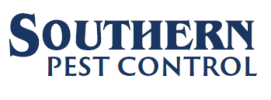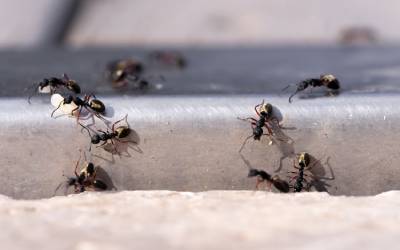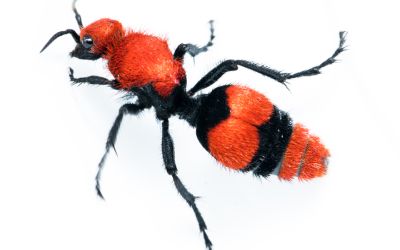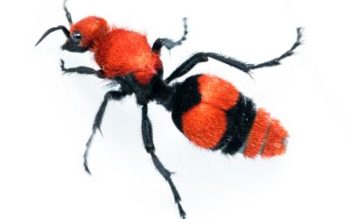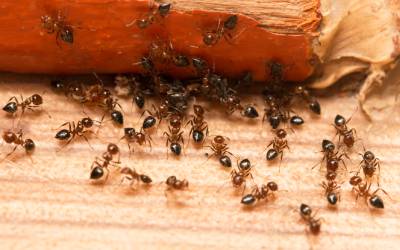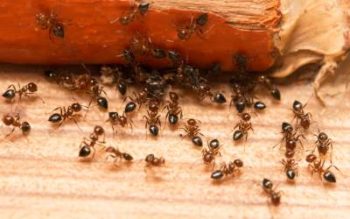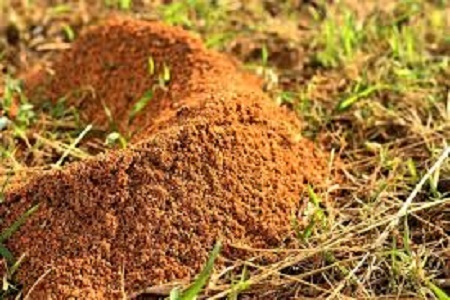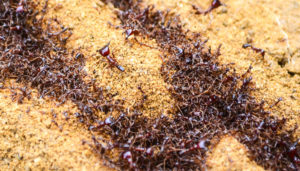The Spring days on the Gulf Coast of Mississippi are ample in sunshine and warmth, especially after the cooler winter rain. The sunshine and warmth awaken swarms of spring insects in Mississippi Gulf Coast such as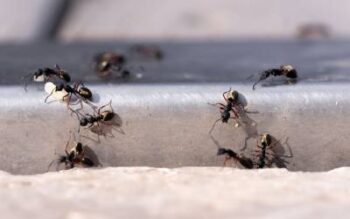 termites, wasps, bees, and ants that can make their way into your home and yard. These swarms are unwelcome guests to any home or backyard gathering. There are, however, ways to protect your property from infestations.
termites, wasps, bees, and ants that can make their way into your home and yard. These swarms are unwelcome guests to any home or backyard gathering. There are, however, ways to protect your property from infestations.
Insects that come out in spring are foraging for food and seeking to mate. While this usually is taking place outdoors, keep in mind that they also could be seeking shelter and someplace to nest inside your home. Be on the lookout for:
- WASPS – Wasps come in a variety of colors which include yellow, brown, red and metallic blue and have a narrow waist and pointed abdomen. They nest in wood fibers that they have chewed into a pulp and formed a honeycombed umbrella shape.
- BEES – Bees that aren’t your friendly honey making variety come yellow with black stripes. They tend to nest in piles of wood or other yard debris.
- ANTS- Including Carpenter Ants and Fire Ants.
- TERMITES – Termites come in shades of brown, white and black and range in sizes ⅛ of an inch to 1 inch. They have antennae and wings and can be mistaken for ants.
Termites to Watch For
Some of the most common swarming insects on the Mississippi Gulf Coast are termites. There are two main types of termites known to the Mississippi Gulf Coast area:
- Drywood termites. As their name implies they make their home in dry wood and need no contact with soil to live. They don’t go for moist, softwood, instead, they eat across the grain of dry, hardwood. Because they go for dry wood, infestations are usually found higher in structures like rafters. They often enter structures through exposed wood or wooden furniture that is brought into the home. They are common to warmer, tropical climates with mild winters. Evidence of infestation includes discarded wings, feces or frass (piles of sawdust from feeding).
- Subterranean termites. These termites cause homeowners the most damage and also are the most common termite in North America. Eastern and Western Subterranean termites are prone to swarm in late February or early March. The Formosan termites swarm later in spring, usually May. They make mud tubes that are used as tunnels from the ground to their food source.
Protecting your home and yard from invading pests.
Below are just a few tips to discourage pests from taking up residence in your space.
- Cleaning up after outdoor BBQ and other cooking as wasps and bees are looking for and are attracted to protein-based foods. Leaking faucets or hoses provide a water source that attracts not only wasps and bees but termites and ants.
- Patching cracks or crevices in walls, repairing broken panels or siding to discourage wasps from nesting in your walls. Keep your yard clean of heavy debris.
- Termites swarm in early spring months, looking to establish new colonies. They are attracted to water sources, and again repair leaking faucets or pipes as they are attracted to a moist environment. Avoid storing items in wooden or cardboard boxes, try plastic storage bins instead.
- Clean your yard regularly of rotting wood. Make sure your porch or deck is in good repair.
- Keep mulch away from your foundation.
- Store all firewood above ground and away from the perimeter of your property.
- Ants such as odorous house ants, nest in walls and beneath carpeting. Keep organic debris such as leaves and piles of wood away from your foundation. Store leftovers in airtight containers and keep areas clean of food debris and dirty dishes. Ants are attracted to sweets as well as protein-based foods.
Spring Pest Control in Mississippi Gulf Coast
All the tips above can help you prevent a pest infestation in the Mississippi Gulf Coast area. But sometimes you can do everything right and still wind up with ants on the counter and a wasp nest under the eave. When that happens, Southern Pest Control can help. We’ve been treating spring pests since 1975, helping countless home and business owners live safer and more comfortably. We’ve helped them through active and preventative measures, and we can help you too. Contact us today to get started!
